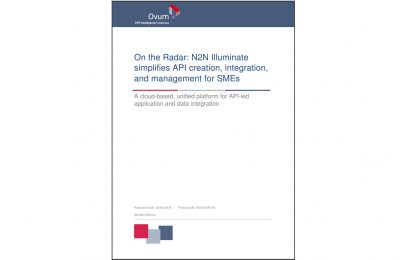Achieving Eudaimonia

When the mind is thinking it is talking to itself.
– Plato
On the surface, philosophers and entrepreneurs do not have much in common. When we think of a typical philosopher – we envision someone clad in a loincloth, thinking and brooding on his own, shunning society, writing books, and disconnected from the world. Philosophers question everything; they engage in discussions and communicate their radical ideas through their books and rhetoric; they are not afraid of taking risks, and they take a firm stance on their ideas on the most incomprehensible topics. If you need any examples of just how radical these philosophers were – look up Nietzsche’s (in)famous quotes on God, and Schopenhauer’s perspectives on love, or Rene Descartes’ spectacular skepticism as to whether his own existence was an illusion. Philosophers truly transform the world with their ideas, visions, and belief systems. The more we think about it – successful entrepreneurs do the same. An average entrepreneur behaves the same way that a philosopher does, reimagines the world with his/her ideas, and innovates with his/her own products and solutions.
Here are some commonalities between philosophers and entrepreneurs:
- Philosophers and entrepreneurs question the status quo. Entrepreneurs create products and solutions that are designed to change the world we live in.
- Philosophers and entrepreneurs are not afraid of taking risks to present their visions to the world.
- Philosophers and entrepreneurs engage in discussions and communicate their radical ideas through their rhetoric. Philosophers do so through their books; entrepreneurs do so through their speeches, emails, social media, and personal communications.
After I came to this realization of how similar philosophers and entrepreneurs were, I searched for articles with more information on applying philosophical ideas to entrepreneurship. I was hoping that I would find tons of articles, whitepapers, books, and other artifacts similar to the content available on ethics and entrepreneurship. But I was disappointed with what I found in my search – only a handful of articles on the subject exist. What’s more, these articles just scratched the surface of rhetoric, uncertainty, risks, communication, etc. There haven’t been many articles on philosophy and entrepreneurship, even though there is a wealth of knowledge that the average entrepreneur can garner from this rich subject. I decided to lead the way and start writing articles myself, to begin this journey.
Let’s turn the clock backward, all the way to 300 BC, and meet Plato.
About 2,400 years ago, Plato contemplated the human condition – and its cure. Plato believed that most humans live their lives impulsively, and compared each of us to charioteers dragged by blindfolded, wild horses. Most of us can guess what these wild horses are – love, fame, money, greed, envy, and other impulses that drive some of us (and probably most entrepreneurs). In fact, some would argue that these wild horses are the keys to the success of some of the leading entrepreneurs of our times. My favorite entrepreneurs, Steve Jobs, Jeff Bezos, Elon Musk, and Larry Page, can probably attribute their successes to these wild horses. Plato believed that while these wild horses are needed to be successful, a fulfilled life can be achieved only if we remove the blindfolds from these horses and tame them to meet our purpose. The result of this process is Eudaimonia (Greek: εὐδαιμονία [eu̯dai̯moníaː]), sometimes anglicized as eudaemonia or eudemonia /juːdɪˈmoʊniə/, a Greek word commonly translated as happiness or welfare; however, “human flourishing or prosperity” and “blessedness” have been proposed as more accurate translations.
According to Plato, Eudaimonia can only be achieved by thinking deeper and getting past superficial motivators. True happiness comes from getting past these superficial external factors and traveling inwards. This inward journey should focus on being within – by engaging with your true self, in its rawest state. The journey will run into many obstacles, from multiple directions – but your biggest enemy for this progress will probably be your inner voice. I can’t speak for others, but this was the case for me. I was confronted with all sorts of emotions and distractions when I began this journey, and I only completed a couple of blocks out of a 100-mile marathon.
Thinking deeper is easier said than done, for most entrepreneurs or business professionals in general. We are routinely fighting tactical fires, handling strategic decisions, dealing with employee issues, supporting board oversight, and handling client challenges, all while performing our duties and tackling administrative issues. Unfortunately, the overhead and resource demands on a typical CEO are much worse in the startup stage, as most startup CEOs have to perform multiple roles within the company to bring about process efficiencies and keep costs low. Most CEOs of tech startups specifically play the role of CMO, CFO, CRO, and sometimes even roll up their sleeves to get into project management and application development as well. Plato understood that this self-reflection can be hard at times, and he recommended following a process of inquiry called the Socratic method. After much deliberation (and extreme resistance), I decided to try this method and answer some of the questions that have stayed with me since I was a child. My first step was to write them down, and some of them were obvious. However – my inner voice continued to distract me and discourage me from this exercise. My inner voice just wanted to get back to work, or if there was free time, binge-watch GOT for the second time. I tried to shut it down, but documented my inner voice, too – as much as the inner voice was a detractor, it’s part of who I am, as well.
- What’s my purpose in life?
- Inner voice: Who decides this purpose, BTW? If you (or I) decide it – then, why does it matter?
- How do I define a successful life?
- Inner voice: More importantly – what is (y)our definition of success? I just want to chill out on a beach and play golf.
- Are my life choices predetermined?
- Inner voice: If they are predetermined, why can’t you(we) just chill out, dude!
- What will happen after my own death?
- Inner voice: Does it truly matter? Once you are dead, it’s lights out for us!
- How do I keep my family happy?
- Inner voice: Good one! Tell me when you find out. You(we) could use some help here.
- How do I attain a truly fulfilled life?
- Inner voice: Plato – need help! I can run and get you a Venti Frappuccino if that helps.
- How can I become the best version of myself to my utmost satisfaction?
- Inner voice: Isn’t this the same as a fulfilled life? You are thinking too much, Kiran!
Some of these are deeply personal, as you can imagine. As you can see, my inner voice continued to make things harder on me by being sarcastic at first, and at times downright confrontational, and uncooperative as well – it kept pulling me towards that tempting remote. I turned on some music, hid the remote from the inner-self, and decided to use the Socratic method – so I called a friend. I feel privileged to have a few of these friends in my close circle, some that I went to elementary school with, and some that I met during my college years. It’s very important that the person you engage in the Socratic method is your confidant, who inquires without judging you, listens without preconceived notions of any kind, and most importantly – this person should be at a similar (or higher) philosophical elevation as you, in order for them to understand and appreciate your inquiries. I feel fortunate to have a friend who is more enlightened than me, and equally curious as to the nature of the world and our place in the human ecosystem. I began the journey with this friend and then continued on with my inner thoughts as they evolved, documenting them on the way, and discussing when needed with my friends and close circle.
This process allowed me to focus enough to reach the first draft of my answers to these questions. I am pretty sure those answers will change over time – sometimes these changes may take years, and sometimes they might change in a couple of days. Regardless of the changes, this approach to documenting the information can be helpful when we face big challenges and milestones that can shake us to our core.
During the formative years of my business, I ran into several issues where most of my advisors and even close friends made predictions about my company’s insurmountable upheavals. We were trying to build scale in a vertical that’s very hard to convince, and the sales cycles were too long for a startup to thrive and succeed. There were a few times where I felt like giving up and believed that this battle might not be worth hanging on to. I saw a dark scenario where I would lose my entire life savings, my family home, my reputation, and everything I stood for, barring a few miraculous developments. During these dark times, I even contemplated giving up, and cutting my losses – but every time I thought about it, my combative inner voice woke up and reminded me of my purpose. Every time I was reminded of that purpose, I decided to shake off the negativity and commit myself to fight harder, aim higher, and never giving up.
My own personal journey taught me that defining the purpose of a company is crucial for the success of a startup. Having clarity of purpose allows the founders to focus their resources properly during the initial stages of the company. More importantly, it allows them to weather the dark clouds and keep fighting until they reach their targets. Unfortunately, some startup founders confuse purpose with outcomes. Some assume the purpose of the company is to become rich, famous, powerful and respected. As important as these outcomes are, they are not the same as purpose. In short – having a clear purpose for the company will allow a CEO to realize his/her Eudaimonia.
If you are a CEO looking to build your purpose statement, I recommend starting the following questions to build your company’s philosophy framework:
- What’s the purpose of my company?
- How do I define success for my company?
- Is my company predetermined to be successful?
- What will happen when my company shuts down?
- What’s the nature of a happy employee?
- What’s the path for my Eudaimonia (fulfilled life)?
- How can I become an Übermensch (“superhuman”) to reach my fullest potential?
If you need help writing answers to these questions, let’s go back to Plato. Plato recommended 4 big ideas to reach this fulfilled state. Let’s consider these, from an entrepreneur’s perspective:
- Think Strategically – Plato called for individuals to Think More and get past the superficial desires to have the most expensive car, the biggest house, or the most powerful job. According to Plato, true happiness comes from getting past these superficial external factors and traveling inwards. This inward journey should focus on engaging with your true self, in its rawest state. Some people might find it difficult to travel this journey on their own, but they can find a good friend or companion who can help them on this path by asking them the right questions and helping them focus. Plato followed this method of inquiry in his writings, especially his most-read work – The Republic. Plato’s method of Q&A is called the Socratic Method and it’s used even today – 2,400 years after his time.
For the modern CEO, I modified this to Think Strategic – travel inwards to identify the soul of the company and engage with it to layout strategic objectives to support the growth of the company. Following the paradigm of avoiding Doxa (superficial excitements) by ignoring the temptations to take shortcuts to get rich quickly or to focus on the base instincts of money, power, and influence in society. Thinking strategically allows a CEO to become decoupled from the blindfolded wild horses of expediency,
- Learn from your team – Plato originally recommended “Learn from your lover,” which was somewhat radical at his day, when women were objectified everywhere. Plato, however, believed that a true relationship relied on two partners inspiring each other to become better versions of themselves.
From an entrepreneur’s perspective, I think we can change this to “learn from your team,” instead. Some entrepreneurs overestimate their power of intuition, and this overconfidence can lead to serious troubles if the CEO makes impulsive decisions. This can be avoided by discussing those decisions with the team – whether it’s the directors, middle management, or the whole staff. Having an open dialogue with the team about critical decisions allows the whole company to be part of the decision-making process, and most importantly, provides the CEO with an ability to learn from his/her team.
- Appreciate and use art – Art has the power to make us happy. It’s a simple truth that when we see beautiful places, things, and people, we feel happy. In the same way, seeing unsightly places, events, and things can make us feel gross and unhappy. Plato believed that a fulfilled life should include engagement with the art of some kind – pottery, literature, poetry, music, dance, or whatever one’s heart desires is a vital component of every being, according to Plato.
Successful CEOs should consider their product/service an art form, and perfect it just like one would perfect a poem, or literature, by focusing on every painstaking detail before putting it out for public consumption. Case in point – Steve Jobs considered all his products a work of art. He pushed his staff to focus not only on external appearances and details but the internal hardware as well. He chastised them about the symmetry of the motherboard layout, the color of the invisible screws, and focused on every single detail. Steve Jobs was a maestro, not only because of his attention to detail but also because of his ability to deliver presentations flawlessly. Underneath it all, he was an artist. He loved simplicity; he loved music, and he aspired to write poetry.
- Reform Society – Plato saw that the leaders in Athens were corrupt, immoral, and lacked the focus to truly support their citizens. He believed that a ruler needed to become a philosopher in order to be successful – or that philosophers themselves need to rule, as an alternative. Unfortunately, we see similar traits in our leaders 2400 years after Plato. While we cannot teach our leaders philosophy, we can implement these principles in our own actions.
As a founder/CEO/professional, applying the rules of philosophy to your company/team/community can help us reform our own society. This can eventually lead to the utopian society that Plato believed in.
So, this is all great, but can philosophy help us answer the urgent, pressing, tactical problems of the modern enterprise? How can a “Philosopher CEO” operate in this competitive world with threats from all directions? Can these 2400-year-old suggestions possibly still apply to this modern world? Wouldn’t this make a CEO weak, and ultimately easily destroyed by his competitors? And most importantly – how can philosophy get me more customers and support the cash flow of a company?
Let’s walk through some of the issues and some of the philosophical questions CEOs face during their careers. Here are a few random questions I came up with, but I am sure there are a lot more for us to consider as we explore.
- You trust a manufacturing company to build your product line. The manufacturing company advises you that they have the trade secrets of your competitor, and they approach you with the opportunity to “buy” this from them for a cost.
- An employee is due for his/her annual performance bonus in a month. He quits his job a month before his bonus was due. We are not obligated to pay him, as per company policies.
- In your recent board meeting, you were informed that one of your competitors is gaming the system by allowing a flawed component in their product, and hence making their product more affordable than your product. You are presented with the opportunity to use this flawed component in your design to cut costs.
In the coming days, I will try to apply the teachings of the great philosophers to answer my own questions as an entrepreneur. Please do feel free to provide feedback and advice on any additional questions I should be thinking of as I write this series. I don’t have a formal degree in philosophy and I certainly do not claim to be an expert in this ocean of knowledge. So, please pardon my errors and bring them to my attention. As Plato teaches us, one of the most important aspects of gaining wisdom is this: I know that I know nothing.


















